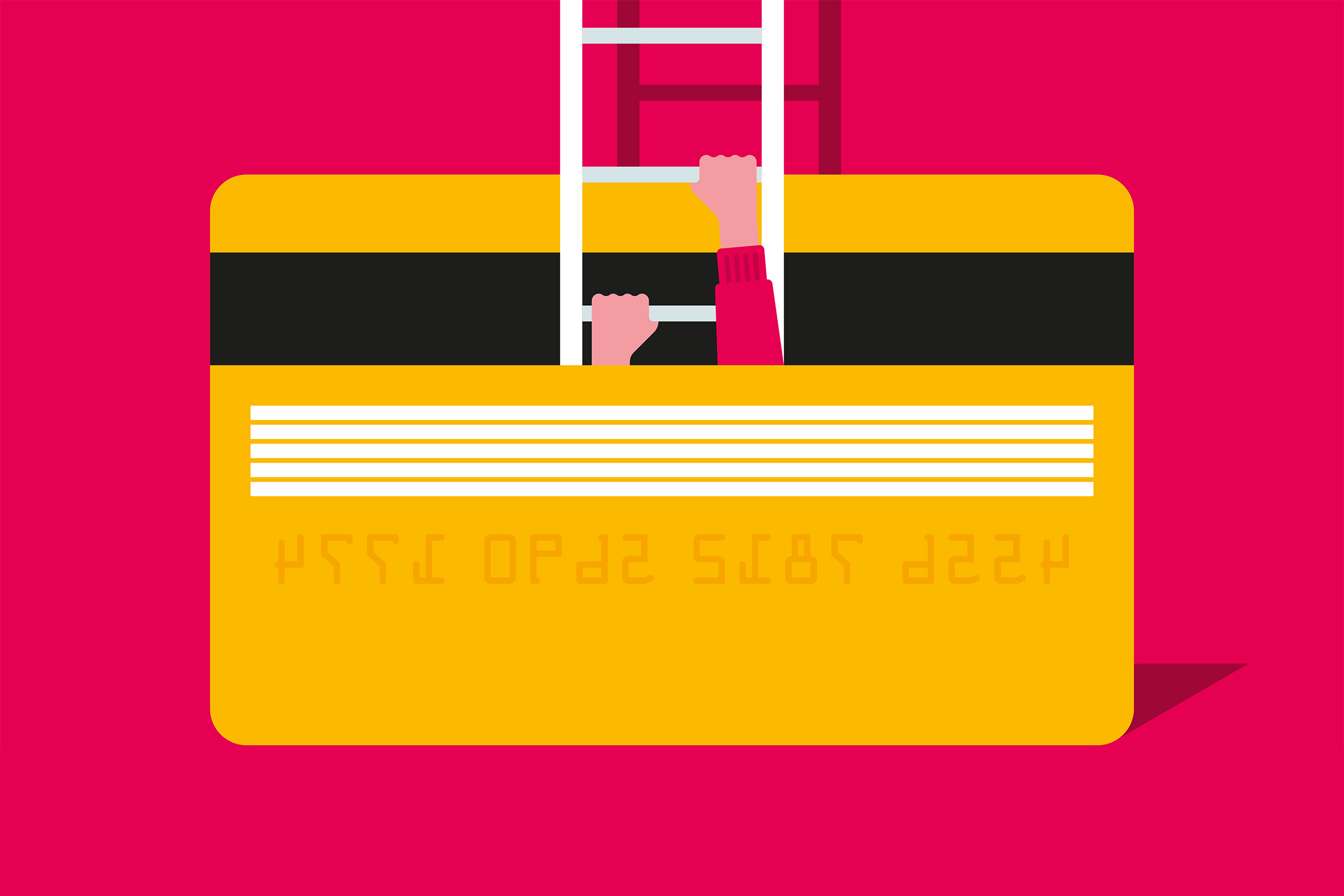
The old saws about penny-pinching young adults relying on ramen and roommates (and sometimes relatives) to make ends meet are clichés for a reason: It’s always been challenging to make an entry-level salary stretch to accommodate rent, utilities, groceries and other necessities. But as the oldest wave of Gen Z reaches their mid-20s, economists say Americans entering adulthood today face the prospect of higher expenses and fewer resources than previous generations.
High rents and student loan debts, in particular, put new college grads behind the eight-ball before they even launch. “Obviously, both of those eat up a huge chunk of anyone’s budget,” says Ross Mayfield, an investment strategy analyst at financial services firm Baird. “Every generation has its own challenges but those are two massive overhangs for younger investors.”
Getting out of debt, saving money and even building wealth aren’t impossible for Gen Z, but financial pros say it takes a strategic approach to getting ahead in this economy. “The biggest thing here is thinking about your strategy comprehensively, rather than in silos,” says Anthony H. Williams, founder of wealth-management firm Vivid Advisory.
Here are experts’ top five pieces of advice for young adults.
Save a few bucks
Building an emergency fund should be every young adult’s first money goal, experts say. With the interest rate on an average credit card hovering above 21%, according to the Federal Reserve, even a small setback like an unexpected car repair can quickly snowball into a major budget issue.
“The first thing to focus on is a small emergency fund,” says Steve Matejka, chief operating officer of Valley Strong Credit Union. If you’re just starting out, a $1,000 target is enough to cover most common financial emergencies and is a realistic goal for young adults on tight budgets, he says. Longer-term, you want to work towards an emergency fund that contains enough to cover two to three months’ worth of living expenses in case you find yourself out of a job.
Use buy-now-pay-later sparingly
Despite their enormous popularity, financial experts urge caution when it comes to buy-now-pay-later, or BNPL, services such as Affirm and Afterpay . If you’re using BNPL to pay for everyday purchases, those small amounts can quickly add up to be a big drain on your budget.
“BNPL tends to lead to more BNPL,” says credit expert John Ulzheimer. Relying on installment payments for everyday expenses can be a hard habit to break, he says, and keeping up with payments—especially if you have several different accounts—can be a hassle.
The other reason experts side-eye BNPL services is because even if you use them responsibly and pay them off diligently, you’re not doing yourself any favors in the credit-building department. While timely payments of credit card bills are reported to credit bureaus, which helps establish your creditworthiness, most BNPL companies don’t report your activity.
Build credit responsibly
Ulzheimer notes that many members of Gen Z, perhaps in response to seeing their parents wrestle with credit card debt, have made a conscious effort to eschew credit cards entirely.
“Credit avoidance is a problem,” he says, because while well-meaning, this impulse robs you of the ability to build a positive credit history. Lenders need to see that you have a good track record when it comes to paying your bills on time before they’ll offer you the lowest rates on credit cards, car loans and even mortgages.
“It's good that you're staying out of problematic debt, but not having any credit cards because you're terrified of them is an overreaction,” Ulzheimer says.
Take the match
If you work for an employer that offers matching 401(k) contributions and don’t take advantage of it, you’re leaving money on the table. “At the bare minimum, take advantage of the match,” Williams says.
At this age, you have the advantage of decades’ worth of compounding that will grow your money over the course of your career. “Investing is a long-term game because if they can’t invest while they're younger, they miss out on compound interest,” Williams says.
If you’re not well-versed in investing, keep it simple for the time being with index funds, one of the foundational building blocks of a portfolio. “It’s proven, over time, that an index fund will generally outperform any other kind of investment strategy,” Matejka says.
Consider a Roth
Early-career retirement savers get the most benefit from Roth IRAs and 401(k)s, which are funded by after-tax, rather than pre-tax, contributions. If you have the option of a Roth 401(k) at your job or if your income makes you eligible for a Roth IRA (that’s an income of less than $161,000 for tax year 2024 if you’re a single filer), contributing to one gives you two advantages.
While you pay income tax on money that goes into a Roth, you’re almost certainly paying a lower marginal tax rate now than you will be in a decade or two when your earnings have risen, and you get the benefit of that pool of money growing tax-free. When you make qualified withdrawals in retirement, those distributions aren’t taxed, either.
“The power of compounding returns growing tax-free is a true benefit,” Matejka says.
More Must-Reads from TIME
- Donald Trump Is TIME's 2024 Person of the Year
- Why We Chose Trump as Person of the Year
- Is Intermittent Fasting Good or Bad for You?
- The 100 Must-Read Books of 2024
- The 20 Best Christmas TV Episodes
- Column: If Optimism Feels Ridiculous Now, Try Hope
- The Future of Climate Action Is Trade Policy
- Merle Bombardieri Is Helping People Make the Baby Decision
Contact us at letters@time.com
